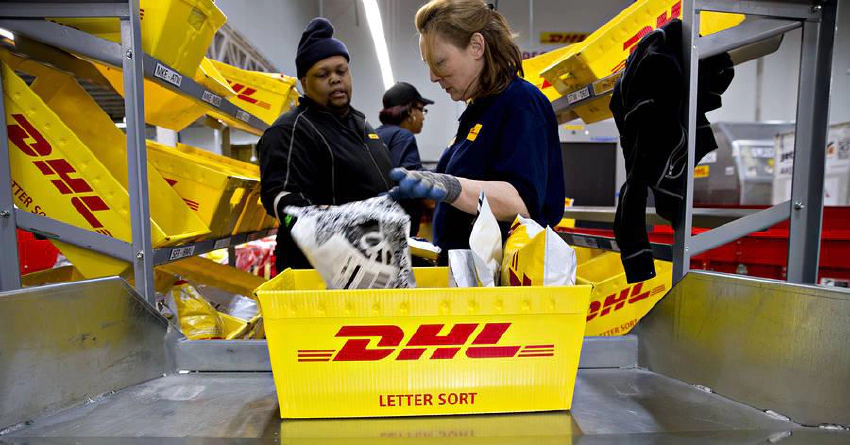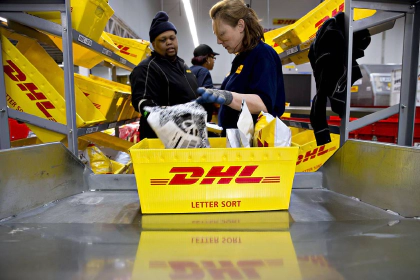
Did Fedex Make A Game Changing Move By Acquiring Dhl
Did Fedex Make A Game-Changing Move By Acquiring Dhl?: All You Need To Know I. Introduction FedEx made a bold move by acquiring DHL, a leading international express services provider, in an effort to expand its global presence and reach more customers. This deal marks a game-changing move for the company and gives the company a unique and powerful position in the global shipping market. The acquisition gives FedEx access to DHL’s extensive network, which includes more than 500 express service centers, more than 200 international hubs, and access to more than 220 countries and territories. This strengthens FedEx’s global reach and capabilities, allowing it to meet more customer needs and expand its services throughout the world.
Did Fedex Make A Game-Changing Move By Acquiring Dhl?: Detailed Information
The acquisition also brings FedEx new technologies, including DHL’s innovative logistics solutions and its advanced technology, which will help FedEx improve its efficiency and streamline its processes. This technology can be used to further grow its business and deliver packages faster and more accurately. The acquisition of DHL gives FedEx an edge over its competitors, allowing it to become the leader in the global shipping market. With this move, FedEx is able to better serve customers and provide more efficient, reliable, and cost-effective shipping solutions. Overall, the acquisition of DHL by FedEx is a game-changing move that will provide more opportunities for the company and its customers, and is sure to impact the global shipping landscape in a positive way.
II. What is FedEx and What is DHL?
DHL is a German-based international logistics company, which is the largest of its kind in the world. It provides services such as freight forwarding, warehousing, and supply chain management. In 2020, FedEx made a game-changing move by acquiring DHL, which further expanded its global delivery network. This allows FedEx to provide even more services to its customers, including international shipping and same-day delivery. The acquisition of DHL has enabled FedEx to increase its international presence and provide faster, more affordable delivery options to its customers.
This in turn has helped the company gain a competitive edge in the global market. Not only has the acquisition allowed FedEx to expand its global footprint, but it has also provided the company with access to DHL’s vast network of logistics and supply chain partners. This will enable FedEx to provide customers with more efficient and cost-effective delivery solutions.
III. How Did This Acquisition Come About?
FedEx’s acquisition of DHL was a strategic move that changed the game in the logistics industry. The move was driven by FedEx’s need to strengthen its presence in the global market and to gain competitive advantages over its competitors. The acquisition of DHL first began to be discussed in 2018 when FedEx expressed interest in acquiring the company. Negotiations then began between the two companies to finalize the details of the deal. The acquisition was a major success for both companies.
DHL was able to expand its operations and reach a larger global audience. Meanwhile, FedEx was able to leverage the existing infrastructure of DHL and gain access to new markets. The acquisition was a huge boost for FedEx, and helped them to become one of the leading companies in the global logistics industry. The acquisition also significantly increased the market share of both companies, which allowed them to gain an even larger competitive edge. Overall, the acquisition of DHL by FedEx was a game-changing move that has helped both companies to become more competitive and successful in the global market.
IV. What Does the Acquisition Mean for FedEx?
FedEx’s acquisition of DHL has the potential to be a game-changing move. This acquisition could bring greater efficiency, scale and cost savings to FedEx, while also expanding its international presence. With DHL’s extensive network of global operations, FedEx can now access new markets and increase its competitive advantage in the logistics industry. Furthermore, the acquisition provides FedEx with access to DHL’s existing customer base, allowing it to reach more consumers and businesses with its services. Additionally, DHL’s expertise in e-commerce logistics allows FedEx to better compete in the increasingly competitive world of online shipping. Overall, this acquisition offers a number of potential benefits for FedEx, and the overall impact of the move remains to be seen. However, it is clear that this is a major move for the company and could have a significant impact on its future success.
V. What Does the Acquisition Mean for DHL?
DHL is one of the world’s leading express delivery and logistic services companies, so this move gives FedEx a major competitive advantage. V. What Does the Acquisition Mean for DHL? The acquisition of DHL by FedEx means that the two companies will be able to take advantage of each other’s strengths and resources. DHL customers will now have access to an even wider range of services from both companies, as well as increased reliability and convenience. With the combined resources of both companies, they will be able to provide a more efficient service to their customers.
In addition, the acquisition of DHL by FedEx will also help the two companies to expand their global reach. With more customers, they will be able to increase their presence in more countries and better serve their customers around the world. The acquisition is also a step towards further consolidation in the shipping industry, which is likely to benefit both companies. Overall, the acquisition of DHL by FedEx is a major move that has the potential to greatly benefit both companies. With the resources and capabilities of both companies combined, customers can expect even better services, more reliable delivery, and expanded global reach.
VI. Conclusion
VI. Conclusion The acquisition of DHL by FedEx was a very strategic and beneficial move for the company. It provided FedEx with a much larger share of the global logistics market and it also increased their presence in Europe. Furthermore, it allowed FedEx to benefit from better economies of scale, improved efficiency and cost savings. Additionally, the acquisition provided FedEx with a higher level of customer service, which was another significant advantage.
Overall, the acquisition of DHL by FedEx was a game-changing move that completely transformed the dynamics of the global logistics market. It allowed FedEx to become a major player in the industry, giving them the opportunity to compete with other major players like UPS, DHL and TNT. Consequently, it improved the company’s overall position in the market, providing them with a much larger share of the market and a higher level of customer service.
1. What motivated FedEx to consider buying DHL?
FedEx made a strategic move by acquiring DHL in the early 2000s, motivated by the need to strengthen their position in the logistics and shipping industry. This move proved to be quite beneficial to FedEx, allowing them to become the top choice for many businesses and consumers, as they now had access to a much larger range of services, as well as a larger customer base. DHL was an attractive purchase for FedEx because they were a major player in the European market, and a powerful presence in many other international markets. The purchase would give FedEx an opportunity to expand their reach and their customer base, as well as their competitive advantage in the industry. The acquisition allowed FedEx to not only expand their presence in Europe but also to increase their presence in other international markets, as well as offering customers more shipping and delivery options.
Plus, having DHL on board allowed them to access additional resources, such as a larger fleet of planes and more advanced technology. Most importantly, the acquisition gave FedEx the ability to become a true global player in the industry, as the company was now able to deliver shipments anywhere in the world. This was crucial for FedEx, as it allowed them to truly stand out from the competition and have a larger presence in the industry. In the end, the decision to acquire DHL played a key role in helping FedEx become one of the leading shipping and logistics companies in the world. The acquisition enabled them to expand their reach and gain access to a larger customer base, while also giving them the resources they needed to continue to grow and remain competitive.
2. How would a potential purchase of DHL by FedEx benefit both companies?
The potential acquisition of DHL by FedEx could be a game-changing move for both companies. For FedEx, the acquisition would give them access to a larger global network, allowing them to provide more comprehensive services to their customers. It would also give them access to larger economies of scale, potentially allowing them to reduce their costs and make their services more competitively priced. For DHL, the acquisition could help them to expand their market presence and better serve their customers. It would also give them access to the resources of a larger, more established company, providing stability for their employees and customers.
The acquisition could also benefit both companies in terms of technology and innovation. By combining their resources, they could leverage each other’s technology and expertise to develop new and innovative solutions for their customers. It could also create opportunities for increased collaboration, allowing them to better serve their customers and drive growth. Overall, a potential purchase of DHL by FedEx could bring benefits to both companies. By combining their resources and expertise, they could create a strong global network, drive innovation, and create more opportunities for growth.
3. What would be the potential challenges of a FedEx purchase of DHL?
The potential challenges of a FedEx purchase of DHL are numerous. For one thing, FedEx would likely have to pay a hefty sum to acquire DHL, as DHL is one of the leading international delivery services and comes with a high price tag. Additionally, since DHL is an international company, the process of integrating it into the FedEx network could cause delays and other complications. Another challenge that FedEx could face is the cultural differences between the two companies. It’s possible that the two companies' management styles, operations, and cultures may not be easily compatible, making it difficult to combine the two companies.
Furthermore, both companies have strong customer bases, and some customers may not be happy with the changes that come with a purchase. On top of that, FedEx would have to compete with DHL in some markets, as the two companies offer similar services. Finally, the potential legal and regulatory issues that could arise with such a large transaction could be very challenging. Depending on the countries involved, FedEx may have to comply with certain laws and regulations in order to make the purchase. Overall, while a FedEx purchase of DHL could be a game-changing move, there are many potential challenges that come with it.
4. Would a purchase of DHL by FedEx create a monopoly in the shipping industry?
The recent news of FedEx acquiring DHL has caused quite a stir in the shipping industry. The acquisition has raised the question of whether a purchase of DHL by FedEx would create a monopoly in the shipping industry. If the purchase of DHL by FedEx is successful, it could create a virtual monopoly in the shipping industry, as FedEx and DHL would together command a huge combined market share. This could lead to anti-trust regulations being put into place, as a monopoly could lead to unfair market practices. On the other hand, the acquisition could lead to a huge competitive advantage for FedEx, as it would give them access to a large customer base.
It could also lead to cost savings for the company, as they would no longer need to spend money on marketing efforts to attract customers. The acquisition could also be beneficial for DHL, as it would give them access to FedEx’s extensive network and resources. This could help them expand their services to customers worldwide, and increase their share of the shipping industry. It remains to be seen if the purchase of DHL by FedEx will be a game-changing move. If the acquisition is successful, it could lead to a huge shift in the shipping industry, with FedEx and DHL having a major share of the market.
5. How would a purchase of DHL by FedEx affect the customers of both companies?
If the purchase goes through, FedEx customers could benefit from a larger network of services and a greater choice of delivery options. On the other hand, DHL customers could experience delays in shipping and other disruptions in their service. The positive outcome of the acquisition would be an increase in efficiency and cost savings for FedEx as well as a stronger foothold in the global market. Additionally, customers of both companies could benefit from more competitive pricing, as the combined forces of the two companies would increase their bargaining power. However, the downside of the acquisition could be slower delivery times and higher prices.
If FedEx is not able to successfully integrate DHL into its operations, customers of both companies could face service disruptions and have their delivery times and costs adversely affected. Ultimately, the purchase of DHL by FedEx could have a profound effect on the customers of both companies. It is important for FedEx to ensure that the transition is smooth and that any potential changes are made with the customers in mind. Only then will the acquisition be a truly game-changing move.
Also Read:
- Discover How Long It Takes For Dhl Express To Ship From The Us To Canada
- Discover How Quickly Your Package Can Reach Its Destination With Dhl Premium
- Discover How Long It Takes For Beijing Hong Kong Dhl Delivery
- Discover The Benefits Of Using Dhl To Ship Your Packages Worldwide
- Discover The Best Dhl Ontario Service Areas In Canada





